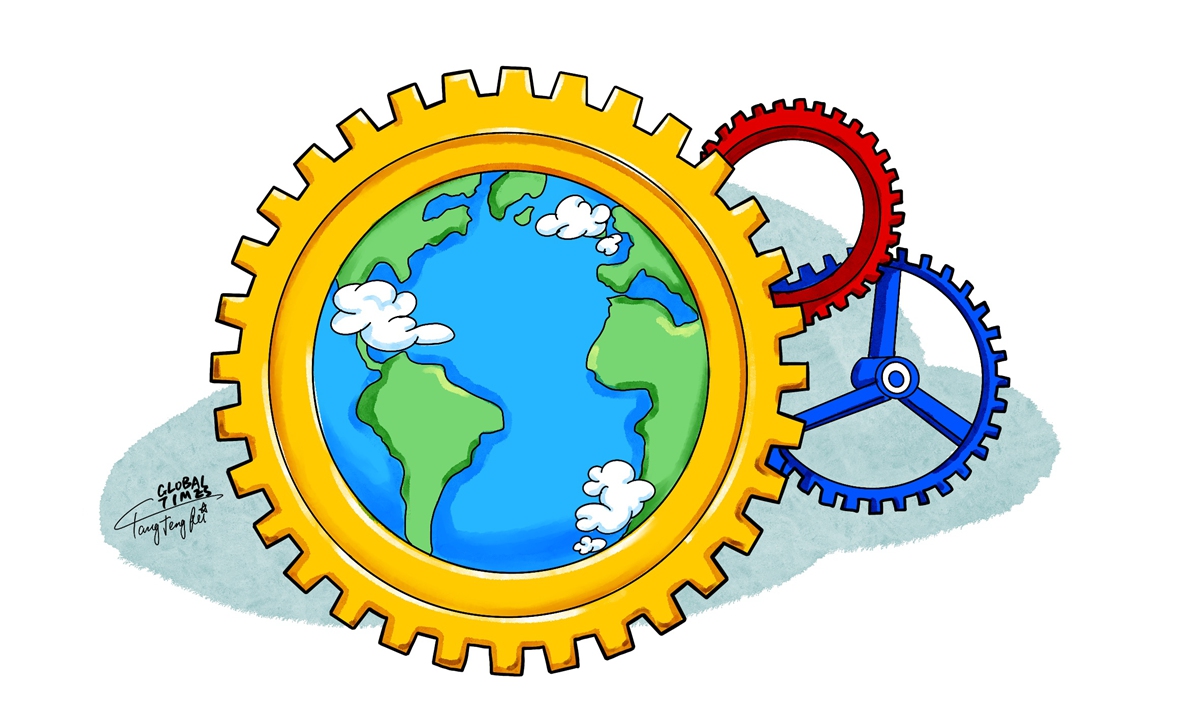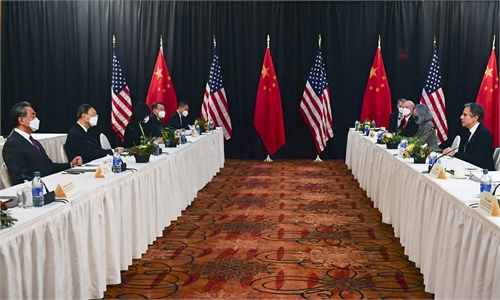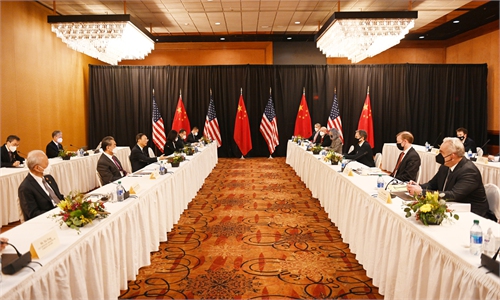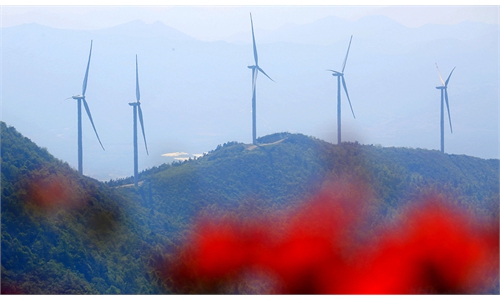COMMENTS / EXPERT ASSESSMENT
Climate change may offer scope for Beijing, Washington

Illustration: Tang Tengfei/GT
After China and the US agreed on joining hands to tackle climate change during the recent high-profile meeting in Alaska, latest information reveals that top climate officials of the two sides both attended a ministerial meeting on climate action co-hosted by China on Tuesday, drawing attention worldwide as the area may offer a chance for the two to seek cooperation despite chilly bilateral relation.The meeting, held online this year, is an annual conference for countries to discuss their implementation of the 2015 Paris Agreement. Against the backdrop of US recently rejoining the climate agreement and the continuous China-US tension, tackling climate change has been widely believed as one field in which the two largest economies could join hands, and may even engender related economic cooperation opportunities, which would benefits both sides and the rest of the world.
The two nations have led different journeys to deal with climate issues in recent years. The previous Trump administration of the US announced to drop out of the Paris Agreement in June 2017, claiming that the agreement had put the US economy at a disadvantage.
China, on the other hand, has committed to fulfill its contribution to the global challenge. In 2020, China announced its aim to peak carbon dioxide emissions before 2030 and achieve carbon neutrality before 2060.
Chinese Foreign Ministry spokesperson Zhao Lijian in January introduced at a press conference that most developed countries have pledged to achieve carbon neutrality by 2050, which means it will take them 60 years to traverse the path from carbon peaking to neutrality. As China aims to peak carbon dioxide emissions before 2030 and strives to achieve carbon neutrality before 2060, it will only take China about 30 years.
Meanwhile, the climate change and following crisis such as species level extinction and sea level rises are not problems that one country or region could solve. It takes a joint effort, especially from large economies, to tackle the crisis faced by all of mankind.
With climate change returning as one crucial agenda for Washington after US President Joe Biden took over office on January 20, the US has shown its intention to reverse its previous approach on dealing with climate issue and make its own contribution to the world.
Cooperation on climate issue is not a brand new topic for China and the US, as the two sides have announced a joint statement on climate change as early as in 2014. Both sides have noted the significant and mutual benefits of intensified action and cooperation on climate change, including enhanced energy security, a cleaner environment, and more abundant natural resources.
The possible collaboration in dealing climate change would broaden cooperative space in related economic areas for the two sides as well, such as clean energy.
Whereas challenges still remain even the climate issues, network security and global poverty alleviation all offer potential for the two large economies to seek cooperation. Though the current US government has signaled reverse of confrontational strategy, the basic tone of Washington has remained a fierce competition attitude when it comes to China-US relations which will definitely limit cooperation depth in any area, including the climate issue.
International cooperation needs mutual trust as a foundation and it's expected that the US could take genuine moves to improve mutual trust and respect, rather than obsessing with finger-pointing or holding to a zero-sum mentality.
The article was compiled based on an interview with Huang Rihan, director of Institute for Dialogue of World Civilizations, Huaqiao University. bizopinion@globaltimes.com.cn



